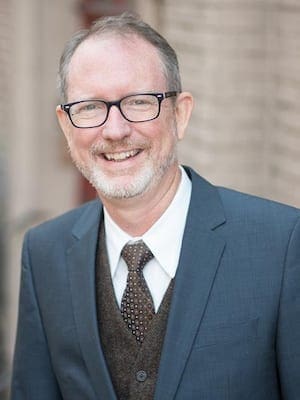All major faith traditions have at their hearts a concern for the poor and vulnerable. The Hebrew prophet Isaiah makes feeding the poor the prerequisite for the nation’s revival (Isaiah 58). Jesus says that caring for the “least of these” is the basis on which we’ll be judged (Matthew 25). Giving alms to the poor is one of the pillars of Islam.
Religion generally, and we clerics specifically, haven’t always done well in this regard. But no one can blame the holy scriptures of any major world religion. The call is clear. The Bible, as has been noted often, has more than 300 verses relating to the poor and to our call to bring social justice.
As a “faith leader” in the Christian tradition, I believe this is part and parcel of my personal and professional calling. We don’t do enough, but the church I’m privileged to serve conducts a weekly food pantry, sends more than 10 percent of its budget to mission agencies and has conducted a drive to “build an ark” with Heifer International (sending farm animals to the world’s neediest). We host many community groups, including Alcoholics Anonymous, that meet essential spiritual or emotional needs of the community. Our city and state are filled with such congregations. Having lived for brief periods in Eastern Europe and China, I know that we need thriving communities of faith.
However, we cannot do it alone. This is not an opinion.
The combined budget of every synagogue, temple, church and mosque in our state would not care for the social needs in Missouri. We need the government to provide essential services. Often, this is done in partnership with religious institutions, but it requires billions of dollars that we citizens pay in taxes. To be sure, it is the energy of faith that sustains and empowers many “life-lifting” programs. But faith groups know our limitations.
It has concerned me and a growing number of clergy, congregants and good-hearted citizens that the Missouri House has cut general revenue funding for social services in House Bill 11. It remains $109.33 million below the amount funded in fiscal year 2009. The Missouri Budget Project estimates that based on the proposed funding cuts, at least 77,000 Missourians will be directly affected by the cuts. At a minimum, Missouri will forfeit $159 million in critical federal funds, which could result in a loss of as many as 3,500 jobs.
The House also has cut the budget for mental health services. Missouri Department of Mental Health estimates that a minimum of 7,000 Missouri children and adults with severe mental illness, developmental disabilities or addictions would be affected. In addition, approximately 200 jobs at community mental health providers could be lost if House Bill 10 remains unchanged in the Senate.
About 500 people gathered on Palm Sunday to protest the cuts. Many of them have since contacted their respective senators to protest efforts to balance the budget on the backs of the poor. As clergyman William Sloan Coffin said, poverty is a tragedy that great wealth makes a sin. We believe that we can and must spur our legislators toward ensuring that people in our state have access to health care.
While we are people of faith, we are not people with delusions. We know that government can’t bring heaven to earth. Nor do we think that one political party has all of the answers. We know that business interests are essential to a flourishing economy. But we have the vision to see that it is both morally and economically good to treat all people with dignity. And business leaders must be a part of any effort to create a better state.
I was on a radio program recently and a caller made the point that people take advantage of food stamp programs, that “free-loaders” will game the system. No doubt that happens. I know that the people who come to our food pantry range in needs. I also don’t doubt that many people are driving on the roads who pay little or no taxes, but I’m happy to pay for good roads. It helps us all to have paved streets. And it would help us all if fewer children went hungry and if more than 43 million Americans didn’t have to go to the emergency room when they get sick. In the end, we are better off morally and pragmatically with an occasionally gamed system than a consistently inadequate one.
Faith, scripture tells us, is the hope of things not seen. We have hope that every person in Missouri will have access to health care. We have hope that every Missourian will have opportunity to work. We have hope that our Legislature will not let ideology rob the poor to play political games.
The Senate is working on the 2010 budget and considering a version of the budget that restores many of the cuts made in the House. I hope so.
A great state cannot be measured by roads, institutions, museums, hills or vineyards alone. The measures also must include, in the words of Isaiah, whether we, “spend ourselves in behalf of the hungry and satisfy the needs of the oppressed.” Only then will our light rise and our night become like the noonday.
Scott L. Stearman is senior pastor of Kirkwood Baptist Church in St. Louis. This column appeared previously in the St. Louis Post-Dispatch.
Stearman directs the International Advocacy Baptist Collaborative that seeks to amplify and coordinate the advocacy work of the global Baptist family at the United Nations and in WDC. He is vice chair of the board of trustees for the Parliament of World Religions and writes regularly on the intersection of religion and international/cultural affairs. For over three decades, he served as a pastor in the Christian (Baptist) tradition. His educational background includes theological degrees from Southwestern and Princeton Seminaries and a Ph.D. in philosophy from the University of Oklahoma.

